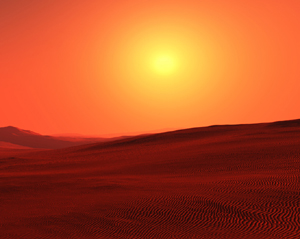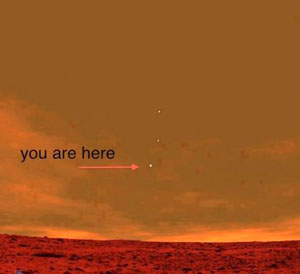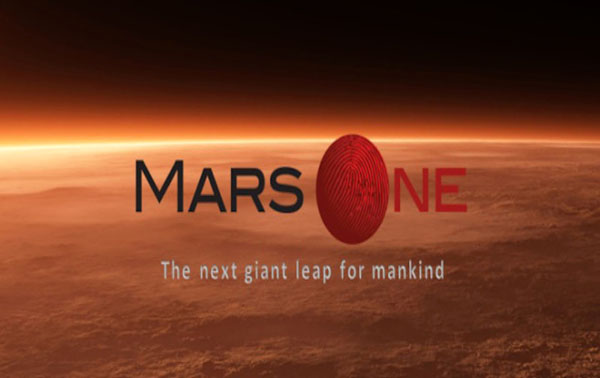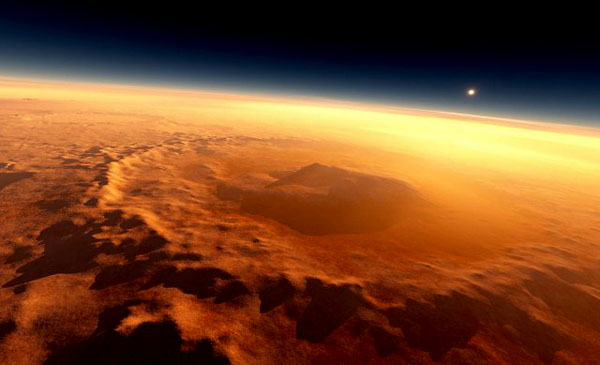Martians Among Us
“Keeping people alive on Mars is a lot harder problem than most people realize.”
– Sydney Do, MIT Aerospace Engineer
The exercise is usually in sociology or ethics class and begins with the teacher declaring “The world is ending. You need to choose the people who will rebuild society,” and ending in a passionate discussion of values and societal norms. It’s a fun “waste” of a class period, but what if it were really happening.
What if the world wasn’t ending, but you still had a voice in how to shape the next human culture? It’s a good question, because it is happening and you do have a hand in shaping the next human colony…on Mars. I’ve been following the efforts of Mars One since they began in 2013 as an Indiegogo campaign with the lofty goal of sending colonists to Mars by 2024. I admit, I was curious as a novelty and didn’t donate, so I was part of the campaign ending $100,000 short of its goal.
Mars One, a Dutch not-for-profit organization, made up of paid and unpaid staff the world over, surmounted the financial hurdles and has now settled on a 100 person group that includes people from all over the world who “vary in background and age, from 20-year-old Bolivian Zaskia, to 60-year-old Pakistani Reginald, each expected to live, work, and die on Mars as part of a tiny outpost on an otherwise dead planet if they’re successful in the program” (McCormick, 2015),
Wild, right? It gets wilder, and involves all of us. Dr. Norbert Kraft, Mars One Chief Medical Officer said that the next phase of the project will “focus on composing teams that can endure all the hardships of a permanent settlement on Mars,” (Mars One, 2015) and that the selection process will be structured like a reality TV show, filming the trials and allowing the audience to help with the selection of candidates in the later rounds.
“The large cut in candidates is an important step towards finding out who has the right stuff to go to Mars,” said Bas Lansdorp, Co-founder & CEO of Mars One (2015). “These aspiring Martians provide the world with a glimpse into who the modern day explorers will be,” and with them go the possible fate of humanity.
No, seriously, think about it. And read on.
A Universe of Risk
“What will Martian society, kick-started by an incredibly diverse and intelligent group…come to look like? Will it remain very connected to Earth, or will its start to develop its own culture, with its own customs, habits, and rituals…such as one’s first step onto the Martian surface?”
-Hannah Earnshaw, 1 of 100 Martians
As the interviews whittled the over 200,000 applicants down to the present 100, a key criteria was that the would-be Martian “show their understanding of the risks involved, team spirit and their motivation to be part of this life changing expedition,” and Dr. Norbert Kraft said, “We were impressed with how many strong candidates participated…which made it a very difficult selection” (Mars One, 2015).
 “Mars makes Antarctica look like paradise,” a scathing article declared, “with a near vacuum atmosphere, radiation as intense as multiple chest X-rays, temperatures that average -67 degrees Fahrenheit, and toxic chlorinated hydrocarbons carpeting its cratered surface. No technology exists today to survive under these conditions, let alone a human body [thus] MIT has already come out with a study that suggests…the Mars One colony would be a complicated and expensive method of suicide…” (Vergano, 2015).
“Mars makes Antarctica look like paradise,” a scathing article declared, “with a near vacuum atmosphere, radiation as intense as multiple chest X-rays, temperatures that average -67 degrees Fahrenheit, and toxic chlorinated hydrocarbons carpeting its cratered surface. No technology exists today to survive under these conditions, let alone a human body [thus] MIT has already come out with a study that suggests…the Mars One colony would be a complicated and expensive method of suicide…” (Vergano, 2015).
The Martian astronauts’ will be isolated to a degree we have not every before seen. A parallel can be made (and I will make it twice) with those intrepid British colonists braving uncharted waters, tight ship holds and cabins, and months of claustrophobia to reach American soil. To reach Martian soil “mobility will be restricted for a long period of time,” (Mars One, 2015) in a trailer-sized box floating through empty space for over six months. Once they make planet-fall, “they will no longer be able to speak to friends and family on Earth face-to-face…” ever again.
 It is for these reasons, the risks within each psyche, that the astronauts were initially “chosen for their inherent ability to cope with these environments,” and now “will receive training on most effectively dealing with them” and in the future, on the Mars Colony, “will be able to receive psychological assistance from Earth if they wish, via long-range communications” (Mars One, 2015).
It is for these reasons, the risks within each psyche, that the astronauts were initially “chosen for their inherent ability to cope with these environments,” and now “will receive training on most effectively dealing with them” and in the future, on the Mars Colony, “will be able to receive psychological assistance from Earth if they wish, via long-range communications” (Mars One, 2015).
There is a hidden risk, that actually super-charged my desire to begin this series. The risk hidden in the strength of Cultural Adaptivity. Even before the Martian astronauts leave Earth, they are being physically, mentally and psychologically trained for an alien environment, thus beginning a change in perspective unlike that which we’ve ever seen. They will naturally begin to separate from their friends, families and social ties and become more connected with each other. Though this is awesome for the success of Mars One, I echo the impassioned sentiments of Hanna Earnshaw, a self-described scientist, student, and adventurer. “The social and political implications of a colony on another planet are staggering, and its development will be fascinating,” but to her fascinating, I add terrifying. The future society, shaped by such deep unknowns, is striking to me as a psychotherapist, journalist and science fiction writer. “Will the Martian colony be its own political entity?” she asks in an interview following her Mars One selection. “I hope so,” she confides, then jumps to the core of my concern: “If so, how will it relate to Earth? What sort of a world will our descendants inherit – and will they remain friends with their cousins on Earth?” (Whittington, 2015).
I don’t know the answer to that, and neither does she. I asked Suzanne Flinkenflögel, MA, and Director of Communications for Mars One about these issues, and she kindly said that, at present they “didn’t have the time to answer every question.” Honestly, I found that a fair response. Mars One is facing unknowns beyond measure, questions without answers. That’s why I decided to offer help, which Ms. Flinkenflögel said they would gladly accept.
If we looked to the past for our answer, much like the British colonists I referenced earlier, what we know of history is that most colonies eventually develop societies based in their separate daily life, detach from their mother countries (or planet) and eventually become powers unto themselves. In the case of America, that led to quite a rivalry.
Making Martians
“The primary personal attributes of a successful astronaut are emotional and psychological stability, supported by personal drive and motivation.”
– Mars One Application
 To confront these unknowns and surmount the risks, Mars One set the basic standard that “the astronauts must be intelligent, creative, psychologically stable and physically healthy” because “once on Mars, there are no means to return to Earth. Mars is home. A grounded, deep sense of purpose will help each astronaut maintain his or her psychological stability and focus as they work together toward a shared and better future.” Along-side that standard they measured each potential Martian’s Resiliency, Adaptability, Curiosity, Ability to Trust and Creativity/Resourcefulness, believing that each quality would help the Martian and the Martian Colony face the known and unknown risks. They clarified that a self-informed “trust in yourself and maintaining trust in others…built upon good judgment” and a sense of humor as “a creative resource, used appropriately as an emerging contextual response” would be two unique personality tools in facing those unknown risks and coping with societal birth pains (Mars One, 2015).
To confront these unknowns and surmount the risks, Mars One set the basic standard that “the astronauts must be intelligent, creative, psychologically stable and physically healthy” because “once on Mars, there are no means to return to Earth. Mars is home. A grounded, deep sense of purpose will help each astronaut maintain his or her psychological stability and focus as they work together toward a shared and better future.” Along-side that standard they measured each potential Martian’s Resiliency, Adaptability, Curiosity, Ability to Trust and Creativity/Resourcefulness, believing that each quality would help the Martian and the Martian Colony face the known and unknown risks. They clarified that a self-informed “trust in yourself and maintaining trust in others…built upon good judgment” and a sense of humor as “a creative resource, used appropriately as an emerging contextual response” would be two unique personality tools in facing those unknown risks and coping with societal birth pains (Mars One, 2015).
From here, the training process begins in the copy of the Mars Outpost on Earth and an increasingly difficult set of simulation missions. Mars One describes these missions as “an extensive, fully immersive exercise that prepares the astronauts for the real mission to Mars…[eventually] located in a harsh environments on Earth…” designed to build physical, mental, emotional and group skills. “Being one of the best individual candidates does not automatically make you the greatest team player,” said Dr. Kraft, “so I look forward to seeing how the candidates progress and work together in the upcoming challenges.”
I look forward to seeing it, too. These “simulation missions” combined with voting the current 100 down to the final colonists sounds exactly like the Reality TV approach Mars One has been citing as part of their program outline. Not only will it unite viewers around the globe, it may be another means of keeping the Martians close to our hearts, and we in theirs, during the potential cultural separation.
Like I mentioned, this will be the first in a series of articles on Mars One because I can only envision the psychological adventure to continue as the mission moves forward, and I welcome journeying with them—on Earth. “Ultimately the question of whether or not to go to Mars and found a colony there is informed by a person’s values…” said Mark Whittington, Huston Space News Journalist (2015). Though detractors, nay-sayers and risks abound “those who dream of Mars see the possibilities of a future greater than the present, filled with promise.”
__________________________________________________
Flinkenflögel, S. (2015) Director of Communications, Mars One. Email Communication
Mars One (2015) News. Retrieved from: http://www.mars-one.com/news/press-releases/the-mars-100-mars-one-announces-round-three-astronaut-candidates#sthash.lfUI7PUV.dpuf
McCormick, R. (2015) Meet the 100 people hoping to live and die on Mars. The Verge. Retrieved from: http://www.msn.com/en-us/news/technology/meet-the-100-people-hoping-to-live-and-die-on-mars/ar-BBhEMc4?ocid=ansVerge11
Vergano, D. (2015) Mars Missions Are A Scam. BuzzFeed. Retrieved from: http://www.buzzfeed.com/danvergano/mars-aint-never-gonna-happen
Whittington, M. (2015) Is going to Mars a scam or a dream of the future better than the past? Examiner. Retrieved from: http://www.examiner.com/article/is-going-to-mars-a-scam-or-a-dream-of-the-future-better-than-the-past


